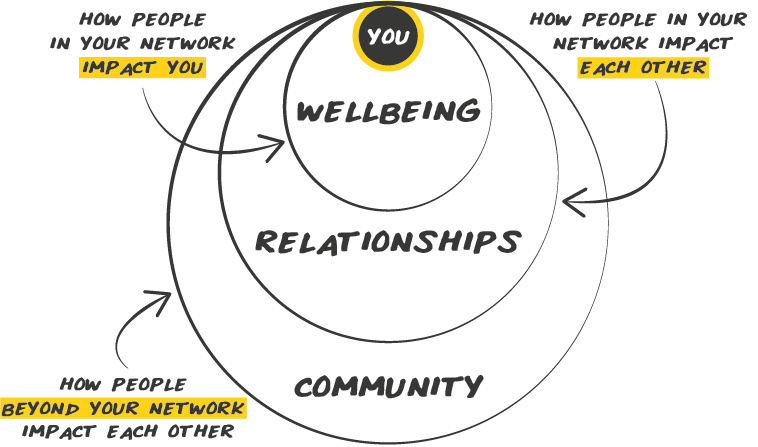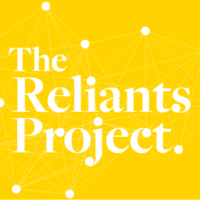reliant /re·li·ant/ noun.
1. a British car manufacturer.
2. a person on which someone depends.
A reliant is an old British car from 1930s, but it’s also my word for a person that someone depends on, which is an essential component of our social networks. Whether you want a stronger sense of wellbeing, to nurture relationships, or impact your community, I’ll share insights about how networks show up in daily life and what habits can help you cultivate yours.

Context
We’ve historically had a ready-made network that we were born into and remained a part of for our entire lives. Today we have smaller families. We also have more divorce, job changes, and relocations. We are living longer, but it is increasingly with chronic conditions and illness. Our lives are more varied and we rarely share the same life events at the same age as the people around us. Globalisation, urbanisation, and professionalisation have all contributed to these changes. Digital and economic divides have created more structural inequalities and our networks reinforce them. Social capital has degraded in some communities as a result. On the plus side, these changes have also brought more interconnectivity and diversity in our networks.
Wellbeing
Thanks to the Harvard longitudinal study, we now know that close relationships are more important to our health and wellbeing than genetics or lifestyle choices. Loneliness and social isolation are toxic to our health. They impact how our brain functions and perpetuate disease. Sadly, almost half of people now say that they discuss important things with either no one or with only one other person. We also know that networks have a huge influence over what we do. They nudge us into habits and normalise certain behaviours. They impact how we see ourselves.
Relationships
Networks impact who we meet people and how seek opportunities. They help people spread information and lend credibility. They provide important emotional and practical support.
Community
At their best, networks provide social capital. This shared trust, cooperation, and reciprocity among people in a community help communities be resilient. At their worst, networks create echo chambers. This concept refers to dense, interconnected networks of likeminded people. They reinforce our point of view and make us blind to conflicting views that others have.
About the author
Hi! I’m Erica, and I’m thrilled to be your guide on this journey together. I have been actively studying networks and their impact on us for years. First, as a student of life, tracking and reflecting on my own experience. More recently, as part of my role at Head of Community and Network at Anthemis, a venture capital firm, applying what we know about networks to support the growth of our portfolio companies.

This work is licensed under a Creative Commons Attribution 4.0 International License.
